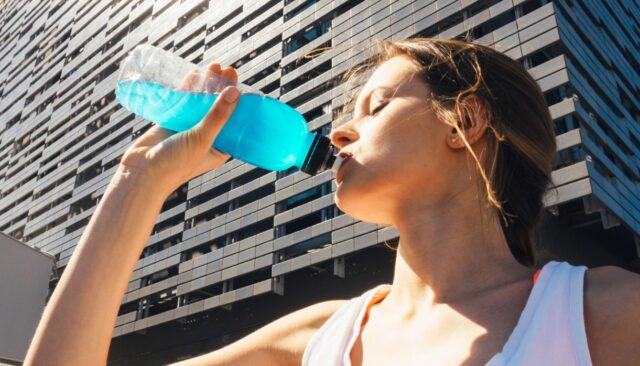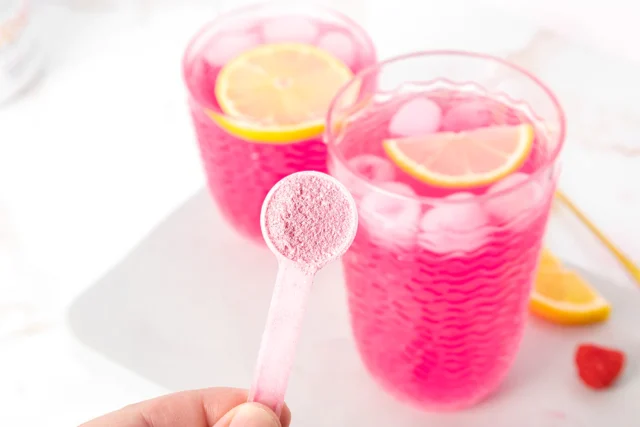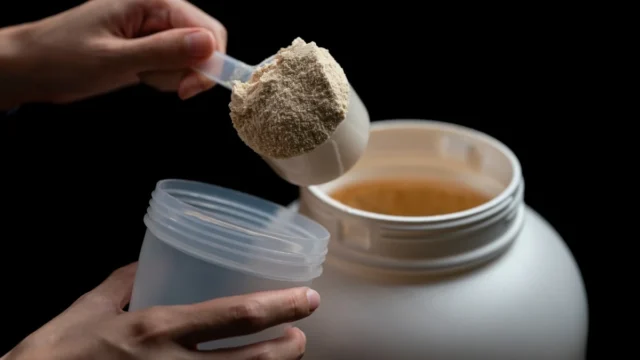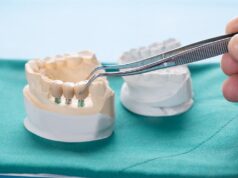
If you’re a runner, you’ve probably been told thousands of times to replenish your electrolyte level properly. But why does your trainer nag so much about it? And do you need to follow specific guidelines while consuming electrolytes? Or is there something else?
Keep reading this article till the end to find out more about it.
Electrolytes – Taking A Closer Look!
Electrolytes, in essence, are a type of medium through which the electricity or energy in your body gets transferred. These components tend to enter our body through a drink or food and that sparks cell function. This, in turn, helps you work appropriately throughout the day.
Although it may not seem so, electrolytes do play a critical role in –
- Keep your muscles in a well-shaped position.
- Improving your metabolism rate.
- Prevent muscle spasms.
In addition to these, it also prompts more than one cell to function as a whole in order to stay healthy and productive. All in all, they’re more than crucial for us to live healthily and peacefully.
Why Should You Consume Electrolyte Powder?

If you’re following a proper diet plan, you probably are getting an adequate amount of salt or electrolyte as a whole. However, for an athlete, such an equation doesn’t really work too well.
Why?
Well, as a performer, you’re constantly upping your game almost regularly. That means you probably are running or exercising for at least seven hours or more every day.
And, as you know, the more you sweat, the more you lose electrolytes from your body. Also, as you’re exercising daily, you’ll need to drink a lot of water frequently as well. This, in turn, might prompt you to urinate often and make you lose your electrolytes.
Due to this reason, it’s essential for every athlete to consume electrolyte powder regularly. This way, it’ll be easier for you to stick to your lean diet plan with a healthy sugar-free beverage and still get enough energy to exercise as much as possible. To know more about a lean diet plan, click here.
What Should You Keep In Mind, Though?
Electrolytes are definitely crucial for our body to keep us going throughout the day. But, if you end up overdosing on them, it might affect your health to some extent too. Therefore, it’s always better to keep the following aspects in mind while taking an electrolyte supplement:
1. Limit your Electrolyte Intake
Don’t drink or consume too many electrolytes a day. Or else, it’ll affect your stomach and cause moderate to extreme vomiting. Talk to your doctor to know more about the correct dosage of the product.
2. Never Consume In Powder Form
You should never consume electrolytes in their powder form. Always mix it with some sort of liquid, preferably water, and then drink it. Otherwise, it might get stuck in the esophagus and cause gagging.
3. Avoid Other Drinks
Don’t drink alcohol or any soft drink while or after consuming the electrolyte powder. It might cause an unhealthy chemical reaction and affect your health massively.
In addition to these, overdosing on electrolytes can also lead to:
- Respiratory depression and gas formation.
- Severe abdominal cramping and diarrhea.
- A significant decrease or increase in blood pressure.
- Going through an alteration of consciousness.
- Flushing, etc.
Myth About Electrolyte Drink

Just drink water if you feel thirsty, and everything will be sorted – You must have heard this many times when asked about taking electrolytes. But is it true or partially wrong?
While growing, you must have headed many things about electrolytes. Some might be facts, while some might be myths. Facts are something that is easily available online. Unfortunately, it is the facts that remain well hidden.
This is why we have listed a few myths related to electrolytes for you to know.
Water Is Enough To Restore Lost Electrolyte
The fluid balance compartment in our body system is quite complex and holds major responsibility. Any imbalance in the body will leave you feeling dehydrated. Sometimes dehydration can reach the point where you might feel sick. During the hot summer, your body loses not only water but also body minerals in the form of sweat. You need both water and mineral to restore your body with the electrolyte deficit.
When You Sweat, Your Body Only Loses Water
Body electrolytes are distributed throughout your body via fluid inside your body. So, when you are sweating, you are actually losing electrolytes. This is the reason why your sweat tastes like salt.
Electrolytes Drinks Are Only For People Associated With Sports
Every sports drink is formulated differently. Understanding the differences in their contents will help you bust this myth. Most electrolyte drinks come with sugar and only a small amount of vitamins and minerals to give instant energy.
Electrolyte Drinks Are Save To Drink
Not all electrolyte drinks are not safe. Sometimes some electrolyte drinks get contaminated during the supply chain. What’s more, some electrolytes might contain things you might be allergic to. Furthermore, the excess electrolyte in the body can also invite health problems.
Is There Any Alternative?

When taking care of electrolyte imbalance, it’s always ideal to go for a powder-based product over anything else. They are more efficient in terms of replenishing your body’s electrolytes as well as offering a better solution as a whole.
Additionally, if you want, you can also carry them in your bag. Whenever you feel bad or unhealthy, you can simply pick it up from there, dissolve it in the water, and drink it.
However, if you’re looking for another option in this aspect, it might be better for you to opt for electrolyte replacement therapy. Although it’s a little time-consuming, it can help you get back whatever electrolytes you’ve lost during an event.
Nonetheless, it’s primarily used if you’re suffering from severe electrolyte deficiency. And you’ll need to be admitted to a hospital to get this type of treatment.
Final Thoughts
Electrolytes, in essence, are pretty vital for your chemical makeup. Hence, it’s always best to keep an eye on your condition no matter what happens. After all, you don’t want to pass out while running on your track, do you?







